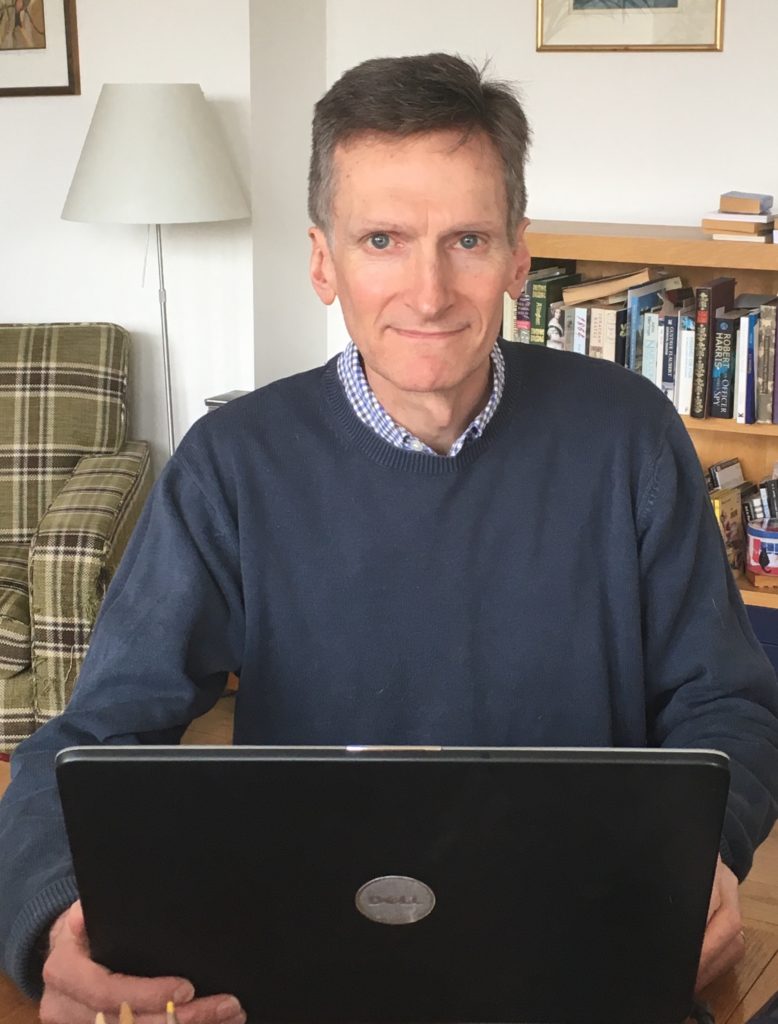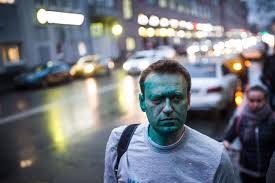7 March 2024
Alexei Navalny
Courage and cowardice.
By Neil Tidmarsh

So the bravest man in the world is dead. There was to be no fairy-tale ending for Russia’s folk hero (see Alexei Navalny, Shaw Sheet issue 246, 10/09/20), after all. But that’s no surprise. Even he must have known that he was a dead man walking from the moment he returned to Russia in 2021 and even before then, even before that attempt to murder him with novichok. What is surprising is that it took them so long to kill him. That in itself is a kind of victory for his courage, a testament to his toughness and determination.
His courage throws the cowardice of his enemies into sharp relief. His fate and Russia’s rubber-stamp elections (a farce which will be repeated later this month) prove that the regime doesn’t have the courage to take on its opponents in a fair political fight. President Putin (described by Navalny as ‘a small cowardly jackal’) is so terrified of the values that Navalny stood for – freedom, openness, the rule of law, democracy – that he couldn’t even bring himself to mention Navalny by name and no one else dared to speak it in his presence.
And it seems that he’s just as afraid of Navalny dead as he was of Navalny alive. The authority’s initial refusal to release the body; the attempt to blackmail the grieving mother into agreeing to a secret burial; the pressure exerted on churches and undertakers to boycott the funeral; the threats made against anyone wanting to attend the funeral; the massive police presence at the funeral; they’re all clear signs that killing Navalny has only intensified the regime’s fear of him.[i]
But the whole Russian system is bolted together by fear, from top to bottom and bottom to top. The oppressed fear the oppressors. The oppressors fear the oppressed. The oppressors even fear each other, as indicated by the way the regime plays the different branches of the security services off against each other. And by the looks of terror on the faces of the generals and politicians who have to face the television cameras beside Putin. And by the way Navalny was able to fool one of his poisoners into spilling the beans about that novichok attack. And by the way Putin’s security services were too scared to tell him the truth about Ukraine before the war. Etc, etc, etc.
Navalny knew that courage was the tool to unbolt this system and defeat corruption, repression and injustice. “Let’s not at least become a nation of frightened people” he urged from prison, leading by example, “of cowards who pretend not to notice the aggressive war against Ukraine launched by our obviously insane czar.” He would have agreed with Winston Churchill that “courage is rightly esteemed the first of human qualities because it is the quality that guarantees all others”.
Ukraine, with the requisite courage, is fighting for the values that Navalny championed and which Russia’s regime fears. The Russian President’s paranoia has sent hundreds of thousands of his citizens to their deaths in that brave country while he himself sits out of reach at the far end of his absurd table. If King Arthur’s Round Table stood for the brotherhood of honour and chivalry, then President Putin’s Long Table stands for the isolationism of fear and paranoia.
It’s quite extraordinary how Russia persecutes and has always persecuted its bravest and best. Banning them, imprisoning them, murdering them, driving them into exile or to suicide. Writers like Pushkin, Dostoevsky, Turgenev, Nabokov and Solzhenitsyn; musicians like Rachmaninov, Tchaikovsky, Prokofiev and Shostakovich; scientists like Andrei Sakharov; politicians like Boris Nemtsov; generals like Svechin and Tukhachevskiy (even Zhukov and Koniev would have been purged in the 1930’s if they hadn’t been out of the way in the Far East – how different the outcome of World War II and the history of the twentieth century might have been if Stalin had indeed managed to get his hands on them then!).
Almost as extraordinary is the way that Russia has barely changed in spite of all those martyrdoms. The history of every other European country in the last two or three centuries has been a movement, however slow, away from repressive autocracy to the kind of liberal democracy advocated by their brave martyrs (see Who Was Robert Boyd?, Shaw Sheet issue 354, 06/04/23, for example). Only Russia stubbornly refuses to acknowledge that its martyrs were on the right side of history. Will Navalny’s martyrdom change all this at last? That’s a question only time and the Russian people can answer.
But if Russia doesn’t become a liberal state which respects human rights, political freedom and the rule of law, then it won’t ever become the Great Power of Putin’s fantasies either. His system of persecution and fear is too wasteful and inefficient. You can’t build a great state by eliminating its bravest and best citizens or by squandering the country’s resources on corruption or on the paranoid monitoring of political opponents (before Navalny was imprisoned he was followed everywhere by not one, not two, not three but four cars full of secret policemen) or on absurd wars. Fear is an inhibiter; your citizens won’t be able to give of their best if they’re hobbled by dread.
But this is a lesson that Putin and his predecessors have never learned. (“We stand for organised terror – this should be frankly admitted” said Felix Dzerzhinsky, founder of the Soviet secret police, member of the Bolshevik Central Committee and chairman of the Supreme Economic Council. “Terror is an absolute necessity”.) No wonder that Russia – potentially a very great country indeed – has punched well below its weight for most of its history.
[i] This column has previously discussed Navalny as a powerful hero-archetype who could have stepped straight out of a Russian folk-tale, but in death he’s become an archetype of even greater Homeric or Sophoclean stature: the regime’s treatment of his body mirrors the last and most powerful scene in the Iliad, where the psychopathic Achilles refuses to release the abused corpse of Hector (Homer’s real hero) to the grieving father for burial; it also mirrors Sophocles’ Antigone, where the tyrant Cleon refuses to release the abused corpse of Polynices to the grieving sister for burial.


